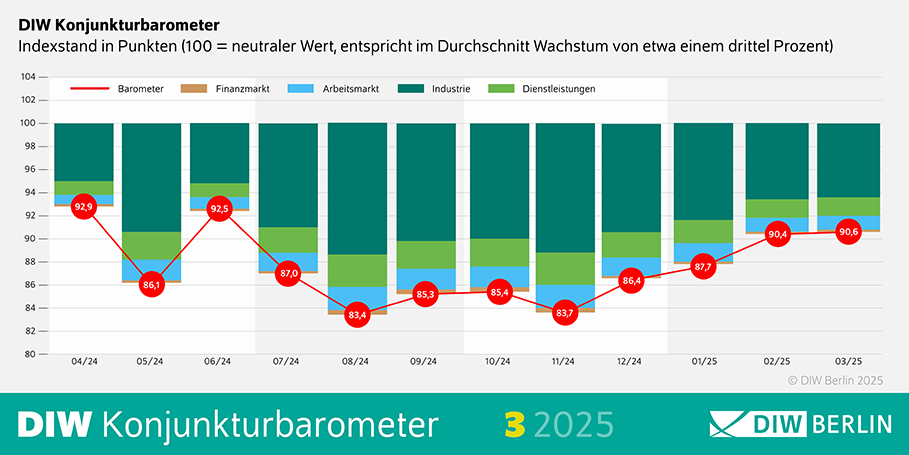2025-03-27
indicators

Germany’s economic recovery remained modest in March, according to the latest economic barometer from the German Institute for Economic Research (DIW Berlin). The indicator rose slightly by 0.2 points to 90.6, continuing the upward trend seen over the past few months. However, the pace of improvement has slowed, and the index remains well below the 100-point mark that signals average economic growth. The sluggish recovery reflects ongoing uncertainty among both companies and private households. Concerns over domestic and international political developments continue to weigh on confidence. Although recent coalition negotiations between the CDU and SPD suggest a potential path to government stability, questions remain about how quickly the new administration will be able to implement economic measures, even with a €500 billion infrastructure package already approved. Germany’s industrial sector, which has faced persistent challenges in recent years, is beginning to show signs of stabilisation. The Purchasing Managers’ Index has improved since the beginning of the year, and the ifo Business Climate Index also rose in March. While business sentiment remains cautious, expectations among industrial firms have become more optimistic. The possibility of further interest rate cuts by the European Central Bank and clearer economic policy direction may help bolster business confidence. However, rising protectionist tendencies in the United States continue to cast a shadow over Germany’s export-oriented industry. Some reduction in uncertainty surrounding trade policies is expected in the near future. The services sector also saw a slight improvement in expectations, though overall sentiment remains muted. Consumer spending remains constrained by a challenging labour market, which has prompted many households to prioritise saving. Despite stable inflation and real wage gains over the past year, the high price level continues to limit purchasing power and dampen consumption. Source: DIW Berlin

